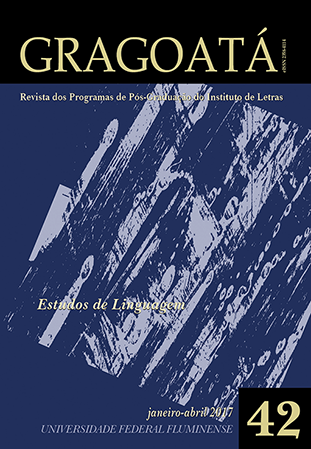Zeeuws-Flemish in Brazil: multilingualism and language decay
DOI:
https://doi.org/10.22409/gragoata.v22i42.33480Keywords:
Immigration. Language practices. Language policies.Abstract
In this paper, we present the linguistic and cultural description of the Brazilian Zeeuws-Flemish population in Espírito Santo, which today has no more than 20 speakers. The Zeeuws-Flemish speakers, hundreds of whom left Zeeland in 1858-1862, have faced hardship and difficulty in adaptation and integration into Brazilian society ever since their arrival, with their language threatened not only by Brazilian Portuguese, but also by Brazilian Pomeranian, somewhat of a lingua franca among the Germanic Protestant community in the region. In this paper we present a sociolinguistic survey of the Brazilian Zeeuws-Flemish language community and an overview of its linguistic features such as intra- and interspeaker allophony, lexical borrowing and calquing, relative pronoun neutralization, do-support, topic drop, complementizer fusion, and loss of diminutives.
---
DOI: http://dx.doi.org/10.22409/gragoata.2017n42a852
---
Original in English.
Downloads
Downloads
Published
How to Cite
Issue
Section
License
Authors who publish in Gragoatá agree to the following terms:
The authors retain the rights and give the journal the right to the first publication, simultaneously subject to a Creative Commons license CC-BY-NC 4.0, which allows sharing by third parties with due mention to the author and the first publication by Gragoatá.
Authors may enter into additional and separate contractual arrangements for the non-exclusive distribution of the published version of the work (for example, posting it in an institutional repository or publishing it in a book), with recognition of its initial publication in Gragoatá.

Gragoatá is licensed under a Creative Commons - Attribution-NonCommercial 4.0 International.











